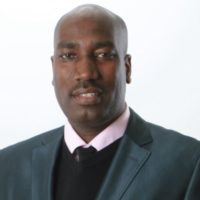Editor’s Note: This column first appeared in Amjambo Africa, a print and digital publication that serves new immigrants to Maine. It is republished with permission.
This May I had the honor and pleasure of attending a number of graduation ceremonies, and hearing the stories of many students from Maine’s immigrant communities who managed to finish their college studies despite innumerable challenges facing them — language barriers, years-long separations from relatives, and financial struggles, among others. The courage and resilience demonstrated by these young graduates inspired me and touched my heart.
On May 7, I was invited to the graduation of a community member from the department of biomedical engineering at the University of Maine. I found his story particularly inspirational. For five years, he studied hard full time while working at a full-time job, in order to sustain himself and his mother in Maine, and also to provide for his father and four younger siblings, who were still living in his country of origin and waiting to be allowed into the U.S. The young man said that the loneliness of those years of family separation was very hard.
But at his graduation party, joy and happiness filled the room — his father and siblings had made it to the U.S, and were at the graduation! Their speeches moved the hearts of everyone in attendance. The young man’s parents said that experiencing the graduation was one of the best things that had ever happened to them — something they had always prayed for, and felt fortunate to be able to see become a reality. They had never had a chance to attend college themselves, but had encouraged their son to attend college. And now, the family was reunited at last and celebrating together. It was a remarkable moment to witness.
Current U.S immigration policy, and the years long backlog of asylum applications, mean that many immigrants in Maine must live apart from their family for years, without a chance to participate in the important life events of their loved ones — graduations, weddings, births, funerals. Mainers should understand that behind the term “immigrant” are human beings — people like them — whose happiness depends on closeness to loved ones, as well as acceptance from the community at large.
And the people involved in the immigration process — government officials, immigration officers, judges — should understand that behind the files on their desks, and the alien numbers they give out are people like them, with mothers, and fathers, and siblings, and children. We all know that isolation and loneliness are detrimental to health and cause serious problems. All of us should recognize the importance of reuniting families. It is time for the U.S. to think creatively of ways to avoid current, unnecessary immigration processing delays.
When I came to Maine from DR Congo 20 years ago now, it took just one year for me to get my status as an asylee. The average wait was three months at that time. Now the average wait for an asylum case to be decided is over four years, and some asylum seekers in Maine say they have been waiting as long as a decade for their case to be decided. During all this time, they have not been able to see family members back home.
Certainly now, when Maine’s employers are desperate for workers, it makes sense to reform the system quickly. And while we are talking reform — if we really want to make a difference that would help families — the U.S. should seriously invest in promoting peace in the countries where refugees are coming from, so that they are not forced to leave their homes and their loved ones, and seek refuge elsewhere.
My prayers and thoughts go out to those who have lost their homelands. June is World Refugee Awareness Month, a time for all of us to stop and take stock of what it really means to suffer the fate of being separated from one’s loved ones — and lose everything one once knew and held dear.







